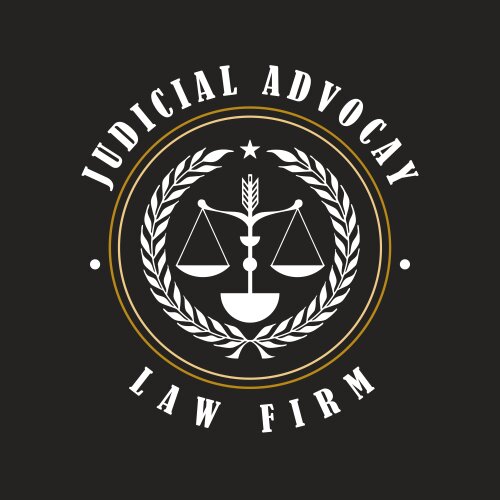Best Domestic Violence Lawyers in Manila
Share your needs with us, get contacted by law firms.
Free. Takes 2 min.
Free Guide to Hiring a Family Lawyer
List of the best lawyers in Manila, Philippines
Philippines Domestic Violence Legal Questions answered by Lawyers
Browse our 5 legal questions about Domestic Violence in Philippines and read the lawyer answers, or ask your own questions for free.
- My father is allegedly accused of rape, what are the step we could do?
- My 16 years old cousin was caught with her 28 years old boyfriend, my family plans to consult DSWD with what happened. Then few days after the incident my cousin then claimed that my father rape her multiple times.We all now that there is no such rape happened because the... Read more →
-
Lawyer answer by NARAG LAW OFFICE
This is a very dangerous case. It is non-bailable. We need to talk ASAP. Online will do. We charge 5,000 for the consultation - Atty. Mario P Narag, Jr. - Narag Law Office
Read full answer - Visitation Rights
- My question is I am going to work abroad but I don't want my husband to leave with my children ages 20 (Son),18(son), 10(daughter) because he is addictive to alcohol(alcoholic) and everytime he is drunk he is fond of verbal abuse and I am worried about my childrens safety when... Read more →
-
Lawyer answer by Dapat & Dapat Lawyers
Dapat and Dapat Lawyers is a full-service law firm with over 13 years of experience representing clients successfully. We are able and willing to represent you after a full assessment of your case.
Read full answer - Good evening,pwede Po ba Ako maka file Ng case sa asawa ko na keep on accusing na may iba akong lalaki kahit 100% naman na Wala..tapos minu mura mura pa Ako sa mga chat nya.
- Good evening,pwede Po ba Ako maka file Ng case sa asawa ko na keep on accusing na may iba akong lalaki kahit 100% naman na Wala..tapos minu mura mura pa Ako sa mga chat nya.
-
Lawyer answer by Dapat & Dapat Lawyers
Dapat and Dapat Lawyers is a full-service law firm with over 13 years of experience representing clients successfully. We are able and willing to represent you after a full assessment of your case.
Read full answer
About Domestic Violence Law in Manila, Philippines
Domestic violence refers to any act of physical, sexual, psychological, or economic abuse committed by a family or household member against another in a domestic setting. In Manila, Philippines, domestic violence is a grave offense and is taken very seriously by the law. It is governed by the Anti-Violence Against Women and Their Children Act of 2004, also known as Republic Act No. 9262.
Why You May Need a Lawyer
When dealing with domestic violence, you may need a lawyer to ensure your rights are protected and to guide you through the legal process. Here are some common situations where legal help is required:
- Obtaining a restraining order against an abusive partner or family member.
- Filing for legal separation, annulment, or divorce due to domestic violence.
- Seeking custody or visitation rights for children affected by domestic violence.
- Defending false accusations of domestic violence.
- Obtaining financial support or compensation for the damages caused by domestic violence.
Local Laws Overview
The key aspects of local laws relevant to domestic violence in Manila, Philippines, are as follows:
- The Anti-Violence Against Women and Their Children Act of 2004 criminalizes acts of domestic violence.
- It provides for the protection and civil rights of victims, including temporary and permanent protection orders.
- The law establishes specialized courts and agencies to handle cases related to domestic violence.
- Penalties for perpetrators can include imprisonment, fines, and mandatory counseling or rehabilitation programs.
- Victims have the right to seek financial support and damages from the abuser.
Frequently Asked Questions
Q: How can I file a protection order against my abuser?
A: To file for a protection order, you can seek assistance from the barangay (village) where you reside or the nearest police station. They will guide you through the process and help you obtain the necessary forms.
Q: Can the police arrest the abuser without a warrant?
A: Yes, the police may arrest the abuser without a warrant if there is probable cause or if they witnessed the act of violence.
Q: How long does a protection order remain in effect?
A: A temporary protection order is initially granted for 30 days, while a permanent protection order can be obtained after a hearing and remains in effect until revoked by the court.
Q: Can I drop the charges against my abuser?
A: Only the court can decide whether to drop the charges. As a victim, you can express your desire to withdraw the case, but the final decision rests with the prosecutor and the court.
Q: Will my identity be kept confidential during legal proceedings?
A: The law provides measures to protect the privacy and confidentiality of the victim's identity during legal proceedings to ensure their safety and well-being.
Additional Resources
If you need further assistance or information about domestic violence in Manila, Philippines, you can reach out to the following resources:
- Philippine Commission on Women (PCW) - https://pcw.gov.ph
- Gender and Development (GAD) Office in your local government unit (barangay, municipality, or city)
- Women's Crisis Center or Women's Desk in your area
Next Steps
If you require legal assistance regarding domestic violence, here are the recommended next steps:
- Report the domestic violence incident to the authorities or seek help from your local barangay or police station.
- Ensure your safety by seeking shelter in a safe place or reaching out to a women's crisis center.
- Contact a lawyer specializing in domestic violence cases to discuss your situation and receive legal advice.
- Cooperate with the investigating authorities and provide them with any necessary evidence or documentation.
- Attend court hearings and cooperate with the legal process to ensure your rights are protected and justice is served.
Lawzana helps you find the best lawyers and law firms in Manila through a curated and pre-screened list of qualified legal professionals. Our platform offers rankings and detailed profiles of attorneys and law firms, allowing you to compare based on practice areas, including Domestic Violence, experience, and client feedback.
Each profile includes a description of the firm's areas of practice, client reviews, team members and partners, year of establishment, spoken languages, office locations, contact information, social media presence, and any published articles or resources. Most firms on our platform speak English and are experienced in both local and international legal matters.
Get a quote from top-rated law firms in Manila, Philippines — quickly, securely, and without unnecessary hassle.
Disclaimer:
The information provided on this page is for general informational purposes only and does not constitute legal advice. While we strive to ensure the accuracy and relevance of the content, legal information may change over time, and interpretations of the law can vary. You should always consult with a qualified legal professional for advice specific to your situation.
We disclaim all liability for actions taken or not taken based on the content of this page. If you believe any information is incorrect or outdated, please contact us, and we will review and update it where appropriate.

















